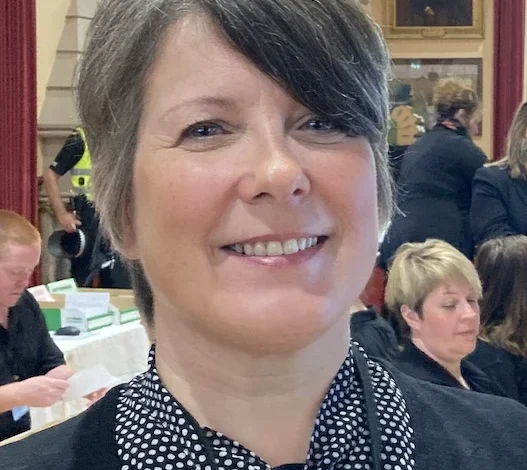Community Councillor’s frustration over lack of ‘lasting outcomes’ from childcare pilot project

FRUSTRATION has been raised over what long-term benefits will come from a government-funded pilot project which has a focus on supporting childcare in the Westside and North Isles.
Shetland West councillor Liz Peterson told a meeting of Shetland Islands Council’s education and families committee on Monday that she feared funding for the project was being “frittered away” on one-off activities with little long-term benefit.
But committee chair Dave Sandison highlighted that the Early Adopter scheme is only a pilot project, which will feed back into the “bigger picture” nationally.
Shetland is one of six local authorities in Scotland taking part in the scheme, with the hope that the project aids the development of national policy which explores how best to meet childcare needs of families in remote and rural areas.
The purpose of the early adopter project locally is to design and test “place-based” approaches to childcare in Shetland.
Around £1.1 million has been provided to Shetland to cover the period between September 2024 and March 2026, when the project concludes.
Shetland West councillor Liz Peterson. Photo: Shetland News
But Peterson said no plans had been made for a community-led childcare system in the Westside and North Isles – something which she suggested was part of the initial aims.
She said she appreciated some of the spend so far, but Peterson added that with only a few months left of the project she was becoming “increasingly concerned” over the apparent lack of long-term benefit.
“My fear is that this money is being frittered away on one-off periphery activities and therefore this project will have no long-lasting outcomes or benefits for these two fragile communities,” she said.
The Westside and the North Isles were picked as target locations after research showed barriers to childcare increased in these areas.
A report which went in front of councillors earlier this year said the work undertaken in the Westside has included a breakfast club and after school club at Happyhansel Primary School in Walls, and supervision in the Aith leisure centre.
In the North Isles there were also plans to recruit extra nursery workers in Yell and Unst, focused on getting an increased number of paid two-year-olds into the setting.
But quality improvement officer Chloe Kerr said there is an underspend on the project, with recruitment challenges affecting things.
She said the project continues to be developed on an “ongoing basis”.
Kerr told councillors that there has been success when there has been “ownership from communities and multi-agency approach”.
For example, since the last update to councillors, a club has now been offered in Sandness which has been driven by the community.
This was not in the initial project plan, “but as we’re listening to communities and we’re working with other people, we’re starting to understand what families need”.
Kerr added that spend is “allocated as situations arise”, with no guarantee the funding will all be used up.
However, she said the council is “doing everything we can to make best use of the funding”.
SIC leader Emma Macdonald said the real challenge around the funding was its short-term nature.
“We can’t set up a project that is for eternity when we have a funding stop […] of March 26,” she added.
“I don’t think the solution is straightforward and I do believe that everybody has done everything they can to try and use that pot of money to explore what the needs are and how we find solutions.
“But it was never going to be able to set up something that provided the childcare that we know that people in these communities need.”
However Peterson suggested the SIC could have started childcare arrangements that community development groups could potentially have continued.
“I feel that we’ve missed a trick here,” she said.
Sandison said the “core reason” for the whole project is to feed back local experience into the national picture.
“I think we have to support this as much as possible and try and look for the gems that might come out of it, as well as the absolute downsides, where we know it’s simply not going to work,” he said.
Committee vice-chair Catherine Hughson also said first minister John Swinney had been impressed by the “flexible” use of the funding in Shetland.
During the summer the first minister visited Shetland, including Yell where he attended Mid Yell Junior High School – which is involved in the early adopter scheme through its nursery department.
Hughson added that the Mid Yell headteacher also spoke about how problems with recruitment has affected delivery.
“We have done the best in the circumstances that we have done, and I think we need to offer a vote of thanks up to everybody that’s been involved,” the Shetland Central member said.
“It’s not been an easy one to deliver, but I think we’ve done our best.”
Shetland Islands Council first submitted a bid to the Scottish Government to become an early adopter community in 2022.
The bid was unsuccessful, but the Scottish Government made contact with the council again in June 2023 and Shetland was then added.
Speaking in September prior to a visit to the isles, first minister John Swinney said: “Shetland is one of six childcare Early Adopter Communities areas across Scotland expanding access to childcare for families who need it most – and testing new approaches to delivering childcare in a rural island community.”
The government previously said that the investment in the scheme will “support the development of local childcare systems that are designed to meet families’ needs, with funding targeted at those who are most at risk of living in poverty”.
Shetland News is asking its readers to consider paying for membership to get additional perks:
- Removal of third-party ads;
- Bookmark posts to read later;
- Exclusive curated weekly newsletter;
- Hide membership messages;
- Comments open for discussion.
If you appreciate what we do and feel strongly about impartial local journalism, then please become a member of Shetland News by either making a single payment, or setting up a monthly, quarterly or yearly subscription.





